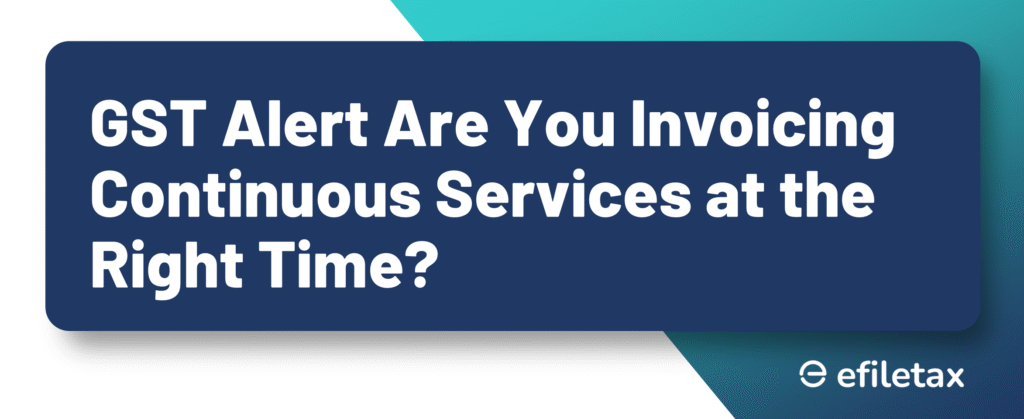
GST Invoice Rules for Continuous Supply of Services
GST invoice rules for continuous supply of services aren’t as straightforward as the 30-day rule for regular services. For continuous contracts like AMC, consulting retainers, or leased equipment, the timing of invoice issuance plays a crucial role in determining the time of supply (ToS) — which in turn impacts GST liability.
Let’s break it down simply, with rules, examples, and compliance tips.
What is Continuous Supply of Services (CSS)?
As per Section 2(33) of the CGST Act, CSS refers to services provided continuously or on a recurrent basis under a contract exceeding three months, with periodic payments involved.
Some common examples:
- Annual maintenance contracts
- Monthly software subscriptions
- Long-term consulting retainers
- Leasing of commercial equipment
General Rule vs. CSS: Key Differences
| Aspect | Normal Services | Continuous Supply of Services (CSS) |
|---|---|---|
| Invoice deadline | Within 30 days from service completion | Depends on due date/payment/event |
| Time of Supply (ToS) | Based on invoice/payment, whichever earlier | Linked to invoice per contract conditions |
| Examples | Freelance project, legal opinion | AMC, retainer, SaaS subscription |
CSS Invoice Timing as per Rule 47 of CGST Rules
Invoice must be issued based on the contract terms:
- When due date is fixed in contract
→ Invoice must be issued on or before the due date
E.g.: If AMC payment due on 5th of every month, raise invoice by 5th. - When no due date is specified
→ Invoice must be issued before or at the time of receiving payment
E.g.: Monthly subscription with no fixed billing date — invoice must match or precede payment. - When payment depends on the completion of an event
→ Invoice must be issued on or before the event completion
E.g.: A three-stage project — invoice each time a milestone is completed.
Legal Backing & Government References
- Section 31(5) of CGST Act, 2017 – Covers invoicing for CSS
- Rule 47 of CGST Rules – Defines time limits for invoicing
- GST FAQs by CBIC – Provide clarity on scenarios like AMC, lease, subscriptions
(Official source: cbic-gst.gov.in)
Expert View: Why Timing Matters
“In CSS, wrongly timed invoices can misplace your Time of Supply, triggering early or late tax liability. One missed invoice deadline and your compliance clock is off.”
– CA Ramesh Iyer, GST Consultant
Practical Compliance Tips
- Mention clear due dates in service contracts – Avoid ambiguity
- Automate invoicing – Use accounting software with CSS modules
- Reconcile ToS with GSTR-1 – Avoid mismatches during GST audits
- Regularly review long-term contracts – Ensure invoice terms are updated
FAQs on GST Invoice Rules for CSS
Q1. What happens if invoice is delayed in CSS?
Ans: GST becomes payable based on earliest of payment or service milestone. Late invoicing may cause mismatched ToS and interest liability.
Q2. Can I use 30-day rule for CSS invoices?
Ans: No, CSS has its own rulebook. The 30-day window applies to regular services, not continuous ones.
Q3. What if due date is not in the contract?
Ans: Then you must issue the invoice before or at the time of receiving payment.
Summary
GST invoice rules for continuous supply of services differ from normal services. If due date is fixed, invoice by that date. If not, invoice before payment. For event-based contracts, invoice at event completion. This timing decides your GST time of supply.
Need help managing recurring invoices and CSS contracts?
Let Efiletax handle your GST invoicing and filing — accurately, on time, every time.
👉 Explore our GST Compliance Services